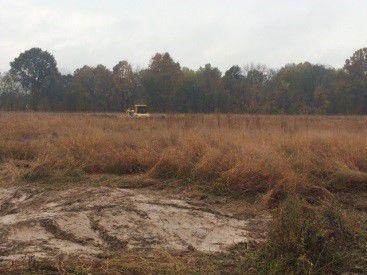Source: sustainablecitynetwork.com
Published: December 31, 2009

By Patrick Lindsey
TDEC Office of Sustainable Practices Sustainability
CHAPEL HILL, Tenn. — A 65-acre agricultural field has been restored to its original wetland state in the rolling hills of Middle Tennessee, producing ecological, human, and economic benefits for the local community.
The restoration project was completed at Henry Horton State Park in Chapel Hill through a partnership between park staff, the town of Chapel Hill, the Tennessee Environmental Council, the Tennessee Department of Environment and Conservation, and local volunteers.
This project has successfully reintroduced one of the most diverse ecosystem types back into the region, while improving local water quality.
The now converted field was drained more than a hundred years ago for use as farm land. The land lies in a natural floodplain along the 269-mile Duck River, making it a fertile site for farming, but an even more appropriate site for an ecosystem restoration project. The wetland will provide crucial habitat for native flora and fauna while also serving as a model and teaching tool for future restorations across the state and country.
Re-flooding and re-planting the land was a team effort. The field had been raised for agricultural use and before it could be flooded it had to be lowered to its original level and drainage points controlled to prevent water from entering the area too soon. Additionally, berms had to be rebuilt. Once the berm system was nearly complete, the Tennessee Department of Environment and Conservation coordinated a crew of workers to plant a mix of wetland seeds prior to flooding the area.
Two weeks after the water returned to the wetland, a chorus of frogs was heard and ducks were sighted in the newly constructed habitat.
The newly restored wetland will benefit the region’s ecological and human health, providing both safe drinking water and improved flood management.
Ronnie Bowers, a special projects coordinator with the State of Tennessee, emphasized the importance of this project, saying “The Duck River provides over 250,000 Tennesseans with their drinking water and wetlands are nature’s best filter to restore cleanliness back into the state’s rivers. Wetlands are nature’s sponge soaking up water and releasing it slowly into our state’s rivers, waterways, and groundwater aquifers. Wetlands cleanse and filter sediment runoff from stormwater and reduce chemical content. This process provides Tennesseans with clean drinking water as well as healthy habitat for aquatic species and wildlife.”
Stormwater filtration is an important function of the wetland, particularly due to the fact that the wetland flows into the Duck River, which contains more biodiversity than any other river in the world. It has more than 151 species of fish, 60 freshwater mussel species, and 22 species of aquatic snails. This diversity is due to numerous conservation efforts that help keep the river clean and healthy. Conservation efforts range from educating farmers about responsible land management to assisting city and county stormwater directors with their programs in urban areas near the Duck River.
The Duck River is so clean that scientists are relocating an endangered mussel species from the Clinch River to the Duck to help preserve the species.
Danny Bingham, mayor of Chapel Hill, said he appreciates the clean water and looks forward to the economic benefits that the restored wetland will bring to the area.
“This restored wetland will add to the draw of the town of Chapel Hill… and will entice visitors from around the state to come and witness the beauty of this unique ecosystem in our own backyard.”
CEO of the Tennessee Environmental Council, Dr. John McFadden, an expert in waterway restoration, added that “natural resources, including this wetland, are the backbone of our economy, our community, and our quality of life.”
The wetland area will also provide opportunities for environmental education to visitors. Stacey Cothran, president of the Friends of Henry Horton State Park, has already started coordinating environmental education events at the wetlands. In March, Cothran worked with volunteers to plant trees in the wetland as part of the statewide 50K Tree Day event sponsored by the Tennessee Environmental Council.
“We are planning several more tree planting events with 5th graders from the Delk-Henson Intermediate School and Cascade Elementary School,” she said. “We plan to educate them about the importance of Tennessee’s wetlands and inform them of the plants and animals that the area supports.” There are also plans to add observation decks in the wetland area, and the berms may eventually serve as walking paths from which wildlife can be observed.
The Henry Horton wetlands serve as a great model of a successful ecosystem restoration project that will help to conserve and protect Tennessee’s waterways and drinking water while providing a real-life teaching tool. The newly-created wetlands are the physical embodiment of Henry Horton State Park’s motto: “We care about our nature, our history, and about you.”
Effective Feb. 1, 2019, Sustainable City Network magazine has discontinued publication. Some back issues are available, but only from 2013 forward.
This article no longer exists at the Source link above. It can be found in the Matteroftrust.org Resource Library.
